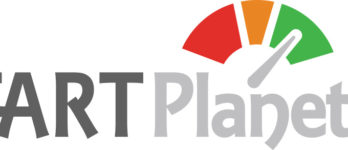Fledge focuses on what we call conscious companies, i.e. companies that do good by doing business, embedding a problem-solving mission into their product or service.
Accelerator Spotlight: Fledge
Location: Seattle, WA (and soon expanding to other cities)
Website: www.fledge.co
Founder and Managing Director: Michael “Luni” Libes
This article is part of our Startup Accelerator Spotlight Series featuring accelerators from around the world. We hope these spotlights will assist the entrepreneur should they consider attending an accelerator program.
In two sentences or less, tell us about your accelerator and its objectives.
Fledge is the conscious company accelerator, guiding mission-driven for-profit companies through the complex process of turning ideas into revenue-generating companies.
Why is your accelerator program unique? Please describe the benefits of participation in your program.
Fledge focuses on what we call conscious companies, i.e. companies that do good by doing business, embedding a problem-solving mission into their product or service. We do this for companies from around the world, inviting the best to join us in-person for 8 weeks for an intense program of training and a flood of mentorship. Participants go back home with a strategic and tactical plan on how to succeed, along with connections to a network of mentors and supports who can help them make that success a reality.
What is the most difficult part of working with startups?
Starting a company is difficult and complex. It’s not a skill (or set of skills) taught in school, nor something you can learn from a book. The difficult part comes from guiding entrepreneurs over the hundreds of common hurdles that get in the way of success, and guiding them through the hundreds of decisions needed to find a success path forward. The good news is that after doing that for almost five years for over a hundred entrepreneurs, patterns emerge that are incredibly helpful at providing guidance. That said, it’s not a list of 10 things to do nor not to do, but more like 200 things to do and 500 things not to do. I’ve spent almost five years documenting these patterns, with most of them in The Next Step series of books for entrepreneurs.
5 Steps from Concept to Startup
What do you enjoy the most; what do you find most appealing about working with entrepreneurial startups?
Personally, I love turning ideas into revenue. That sounds like a simple task, but few startups ever find meaningful amounts of revenues. As a serial entrepreneur, it took me 20 years to grow five startups through that process. As founder and Managing Director of Fledge, it took just a few months to do that for seven startups and four years later, I’ve had the pleasure of helping 55 startups. Despite the ups, downs and angst of startup life, there is nothing better than seeing a great idea turned into a great company.
An Advisory Board: 7 Reasons They Are Critical to the Scalable Start-Up
Tell us about your success stories; which are the most interesting companies to have participated in your program?
- Four years ago, a team of four met me at a coffee shop to share their dream of building and selling clean-burning cookstoves in Africa. They had no money, but a dozen volunteers and a 70 page business plan. Now they are BURN Manufacturing, the largest manufacturer of cookstoves in Kenya, building and selling over 150,000 stoves to date and raising over $ 8 million to make that happen.
- Hundreds of millions of cookstoves are needed in the world, and thus two years later we were intrigued by an Ethiopian applicant. He was a refugee living in Seattle, driving a Lyft, who five years earlier had gone back to Ethiopia and with his brother started building
 cookstoves. With no outside investment, with no true factory, with basically no resources, this company, Obamastove, managed to build and sell over 250,000 stoves, profitably.
cookstoves. With no outside investment, with no true factory, with basically no resources, this company, Obamastove, managed to build and sell over 250,000 stoves, profitably. - Back here in the USA, we have Evnru, a company that has developed technology which makes cotton recyclable. In the history of mankind, all worn clothing has been thrown away. Trillions of dollars of clothing. No longer, as in June 2016, Levi’s announced the first pair of recycled jeans.
What are the three most important factors startup entrepreneurs should consider when contemplating attending an accelerator?
There is really just one factor. Are you a first-time entrepreneur? If so, your odds of success are low. To increase those odds, apply to a good accelerator program. Find one that meets in-person, in cohorts, which provides a flood of mentors and a strong network of support after graduation. Most of the hurdles you need to jump over will come after the few weeks when the program meets in person. The real value of an accelerator is the people it connects you to.
Looking for an accelerator with a focus consistent with your startup? Try Find My Accelerator!
What else would you like to share?
Three bonus bits of advice:
- If your sole mission for starting your startup is to make money, think again.
You have chosen to embark on a journey that will consume all your time for the next 5-10 years. Make that sacrifice worthwhile. Solve an important problem of the world. - Your plan is wrong.
No matter how much time you spend on planning, and no matter how much advice you’ve gotten from mentors on your plan, it’s still likely wrong. Your job as an entrepreneur is to see the flaw as quickly as possible, make a change and try again. That change too is probably wrong. Rinse and repeat and repeat and repeat. -
You can get too much advice, but probably not outside of an accelerator.
It takes 10-15 meetings with mentors before entrepreneurs feel lost with opinions and options. That sounds like a waste of time but as you likely need Plan B, Plan C and Plan D to find success, all those opinions will come back as gold when your Plan A fails. A benefit of a program like Fledge is that you hear Plans A-G within a week or two, stored away for when you need them.











